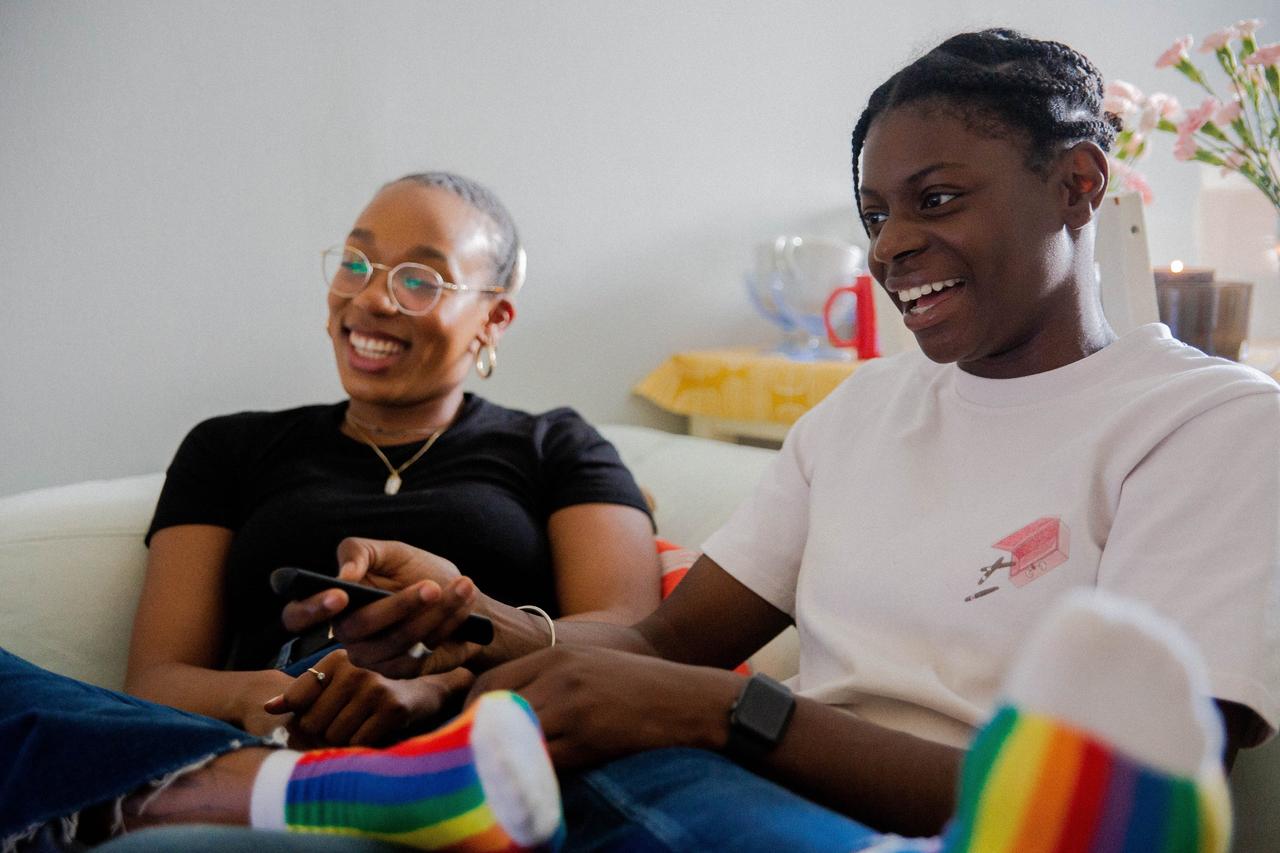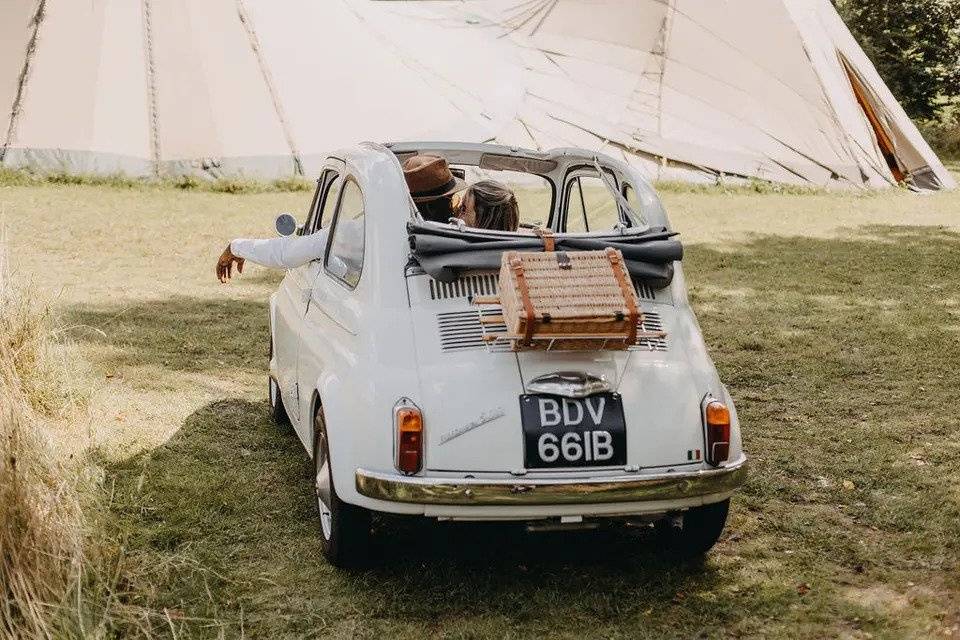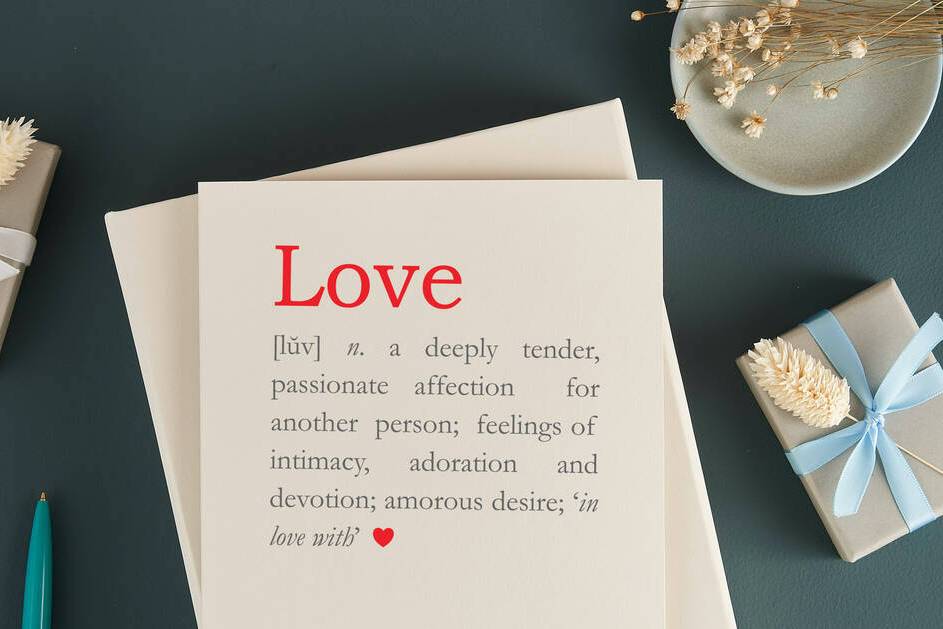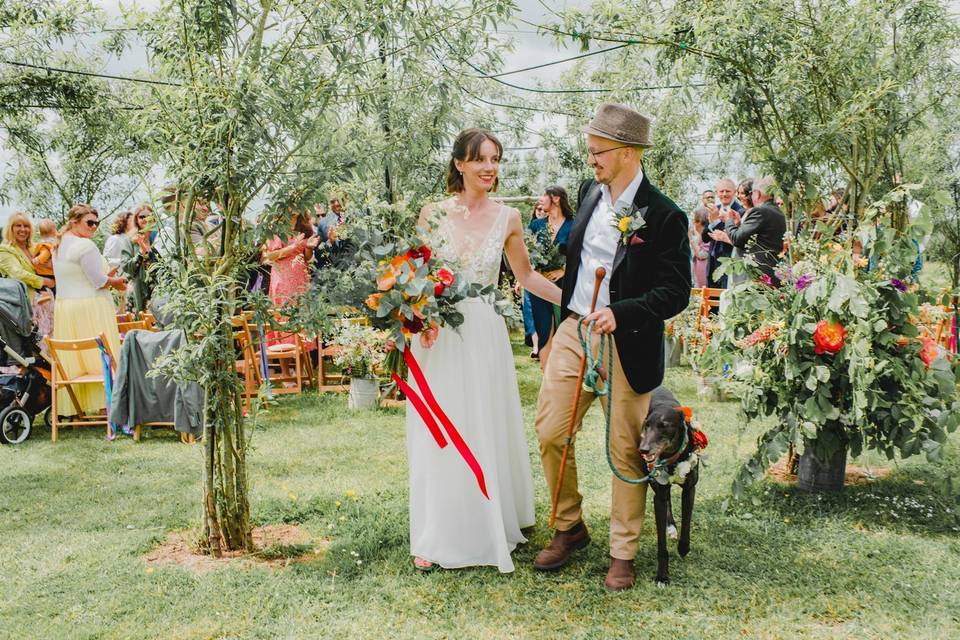11 Simple & Easy Ways to Get Your Partner Involved in Wedding Planning
Struggling to get your other half excited about wedding planning? No worries - we've got you covered with our complete guide to getting your partner involved in wedding planning


Once the excitement of the engagement announcement settles down and you find it’s time to start wedding planning for real, you may find that you are much more interested in getting stuck in than your partner.
If you’re looking for ways to involve your partner in wedding planning, you’ve come to the right place. It's not unusual for one of you to me far more enthusiastic about wedding planning than the other, in fact, it's pretty common - but it doesn't need to stay this way.
There are plenty of ways to get your partner involved in wedding planning, from communicating openly and not making assumptions, to sharing jobs and making it fun. There's no magic formula to avoid all of the wedding planning arguments most couples have, but there are several things you can do to ensure that fighting over who's more interested in planning isn't one of them.
11 Ways to Involve Your Partner in Wedding Planning
Though wedding stress impacts a lot of couples, wedding planning, at the end of the day, should be fun! For both of you. So, to ensure your wedding planning journey is enjoyable for both you and your partner, here are our top tips on how to involve your partner in the process and get them excited about the wedding...
1. Don’t Assume
The first, and arguably most important step when trying to involve your partner in wedding planning, is to not assume they're not interested.
By assuming that your partner wants no part to play in wedding planning, you could actually give the impression that you don’t want them to be involved. Equally, just because someone isn’t diving straight into Pinterest or creating a moodboard, doesn’t mean they aren’t interested. So, rather than assuming, just ask.
How involved do you want to be in wedding planning? What parts would you like to take control over? Is there anything you'd really like at the wedding?
2. Share Your Visions

Set an evening or day aside to go through both of your visions for the wedding. Discuss things like your wedding guest list, venue decor, the type of wedding venue you see yourselves getting married in and anything that is a must-have for either of you. During this conversation, it’ll become clear which aspects of the wedding each of you are really interested in.
It could be that your partner feels really strongly about the music they want, a particular wedding band or DJ perhaps, or that they really want a certain type of guest entertainment there. Talking about your visions and what you see your wedding day looking like is a great way for both of you to get excited about the day, together.
3. Make a To-Do List
Your wedding planning checklist can act as a to-do list when planning a wedding, giving you a timeline of which suppliers to book and when. Having something like this is really helpful when creating your own personalised wedding to-do list.
We would always advise doing this with your partner as a joint task and, while making it, asking them which parts of the planning they’d like to be a part of. The last thing you want to do is assume they don’t want to come to supplier meetings and venue viewings and doing it without them, when actually, they would have loved to have been involved.
4. Have Your Own Rules
Planning a wedding with your partner doesn’t have to be a 50-50 split. Nor does a 90-10 split have to be an issue. You and your partner need to decide what type of wedding planning dynamic works for you and, as long as you’re both happy with it, nothing else matters.
If you’re happy doing the majority of the heavy lifting when it comes to wedding planning, and your partner is okay taking a step back, that’s fine. Equally, if your partner is taking the reins and you’re okay with them doing that, that’s also fine. The key is to find a planning dynamic that works for both of you and create your own rules.
5. Remember That They Do Care...

If the reason you want your partner to be more involved in wedding planning is because you think it shows they care, you may have the wrong end of the stick. Not being super involved in wedding planning doesn’t mean they aren’t bothered about the wedding.
People have different ways of showing that they care and that they’re excited to get married, and not all of them involve buying a wedding planner book and creating a vision board.
6. Know Each Others’ Strengths
Knowing what each other’s strengths and weaknesses are can really help you to share out wedding planning tasks in the most productive way. As we mentioned before, wedding planning doesn’t have to be a 50-50 split. Equally, not all wedding planning tasks are equally weighted in importance and effort.
If one of you is really good with numbers, handling invoices and organising payments, it makes complete sense for that person to be in charge of the wedding budget and ensuring you are on track to stick to your wedding spend.
Skills like negotiating can be really helpful when booking suppliers, having experience with contracts can help when you’re signing up with vendors and people skills can really come in handy when sorting out the seating plan and helping to avoid any guest list politics.
It’s important that you are able to identify each other’s skills and use them in the best way possible when planning, and this will also help to ensure your partner feels involved, even if it isn't in the day-to-day tasks.
7. Share Rather Than Split
Though assigning each other tasks that are suited to your individual strengths works for some wedding planning tasks, we believe that, especially if your partner is reluctant to get involved, sharing jobs rather than splitting them can work best. Why give each of you wedding planning tasks to do separately when you could enjoy doing them together?
Things like organising the wedding catering, choosing a wedding cake flavour, doing the seating plan, viewing wedding venues and buying unusual wedding favours for your guests are all lovely wedding planning tasks that lend themselves to being done together.
8. Book in Time

Scheduling in time for ‘wedding talk’ is essential when planning a wedding together - especially if your other half is reluctant to get involved. Having set dinners, or days, to discuss the wedding means that they won’t feel like you guys are talking about it all the time, and it also avoids the feeling that an intense wedding planning chat has just been sprung on them.
As well as the above, this also helps to ensure that your relationship still has facets to it that don’t revolve around wedding planning. It’s really important to take time out to just be a couple to ensure wedding planning doesn’t dominate all of your conversations.
READ MORE: 60 of the Cutest Date Nights That Won't Break the Bank
9. Communicate Openly
Communication is key to any relationship, but it’s even more important when you’re planning a wedding. If your partner isn’t getting as involved as you would like them to, you need to tell them. It’s no good you sitting there feeling really frustrated with them, whilst they have no idea whatsoever that there’s an issue.
Once you open up and start to have a conversation, you may find that they were completely oblivious to this and would happily get involved, or there might be a reason why they haven’t volunteered themselves for much, and then you can begin to talk about it.
It also might be that your partner doesn’t really know much about what wedding planning entails, in which case you could talk them through the to-do list and see which bits interest them. Talking about how you’re feeling is the best way to navigate your way through wedding planning as a couple.
10. Have Clear Boundaries
Having boundaries in a relationship is really important, but when you’re planning an event as big as a wedding, knowing each other’s boundaries couldn’t be more vital. Even if one of you is doing more planning than the other, or one of you is managing the majority of the budget, it’s important to discuss how much of a say each of you want to have.
Is your partner okay with you booking vendors without them? Are you both happy for just one of you to read a contract before signing? How much freedom do you have to make decisions on both of your behalf? Your partner may not want to be completely immersed in wedding planning, but that doesn’t mean one of you has free rein to do all of the decision making.
Discussing what you’re both happy with will help to ensure both of you feel as involved as you want to be.
11. Make it Fun!

No one likes a Debbie downer, especially when wedding planning. Wedding planning stress and anxiety, unfortunately, is experienced by many couples and it can be a bit overwhelming - so it’s important to keep things as fun and light wherever possible.
Use occasions such as wedding cake tastings or venue shopping as excuses for date days so it feels more fun and romantic as opposed to just a wedmin task you need to tick off the list. Equally, you can set aside evenings for stamping your invitations, planning your seating plan and assigning the speeches and do them over a takeaway and bottle of wine.
Wedding planning doesn’t have to feel like it’s just task after task. It should be fun and there’s no reason why it can’t be!
If it's all getting a bit much for you both, why not consider hiring a wedding planner? Here are some of the best wedding planners in the UK - with their help, you'll have plenty of time for romantic double date nights and extra time together.








